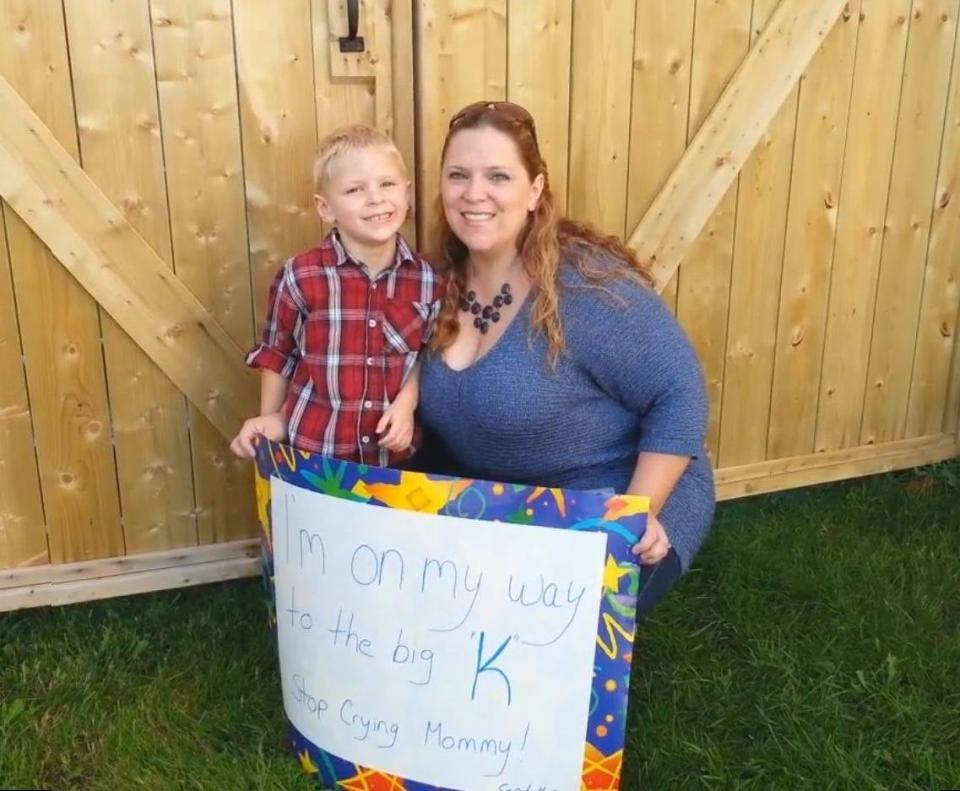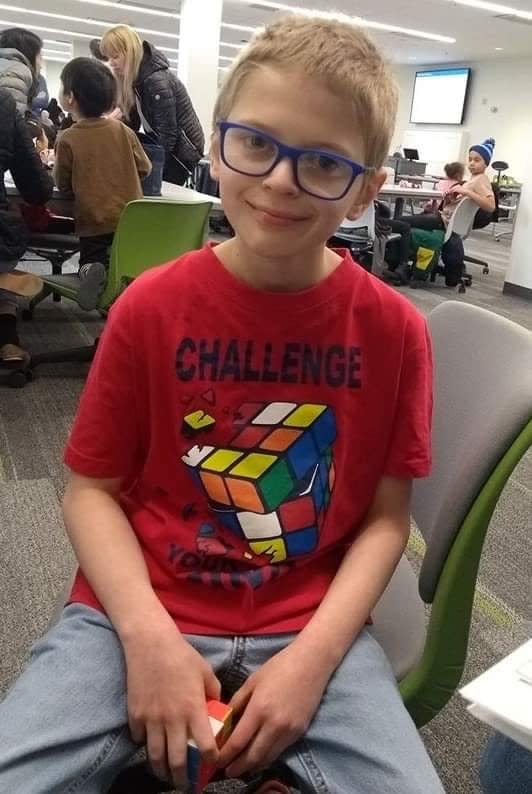'I still had the right to learn.' N.B. teenager shares what it's like to be excluded
A Moncton teen, who used to be excluded from class on a regular basis, is opening up about his experiences in the wake of a warning from the New Brunswick child and youth advocate that this is happening far too often in the education system.
Kelly Lamrock recently pointed out that about 500 students are regularly excluded from class for at least part of the school day and are therefore missing out on the public education they are entitled to by law.
Evan Meunier, 14, says he agrees the province should be striving for more inclusive classrooms.
"Just because I was sent out doesn't mean that I shouldn't have entered the class ever again," he said.
Evan says his exclusion from class started on an occasional basis in Grade 2 because of behaviour tied to obsessive compulsive disorder.
If something upset him, such as wanting something he couldn't have, he'd get an urge to try to escape and would often lash out by punching or kicking.

He'd either be put in a reflection room or everyone else would leave the classroom to get away from him.
Usually within about 20 minutes, Evan says, he was calm enough to rejoin the class.
His mother, Lori Meunier, says it hurt her to hear the classroom would be evacuated because of Evan, and she still wonders about the psychological and social impact that had.
She would rather Evan had been able to go for a little walk.
In retrospect, Evan thinks the school handled it "pretty well," considering he didn't miss much learning and no one was hurt.
"I was just a kid going through a lot. And I still had the right to learn."

Evan also has autism, which makes him sensitive to things like bright lights and loud noises.
Before he started school, he received applied behaviour intervention through the Hébert Centre in Dieppe. It was unfortunate the intervention did not continue in kindergarten, said Meunier.
She said she received "many" calls from the school that year saying they were "having issues."
About halfway through the year, Evan began taking medication.
Meunier suspects a medication issue contributed to an increase in behaviour problems in Grade 3.
Evan was admitted to hospital that year and his medication was reviewed and adjusted.
At that point, more resources became available, she said.
"He was able to meet with a psychologist … an amazing psychiatrist … and they were able to do a lot more evaluations and see whereabouts Evan might have been."
My son has a right to an education … even though I couldn't fix him the way the schools wanted. - Lori Meunier
He started back to school, doing half days at first, and got a dedicated educational assistant, known as an EA.
Communication and contingency planning with the school could have been better, said Meunier, and it was a challenge to get a provincial integrated service delivery team involved.
But eventually, together with the medication adjustments and a support worker, it made a big difference.
"She was someone that already knew him and actually had applied the training before he went to kindergarten. It was one of his favourite workers, and the school noticed right away a change in behaviours."
By the end of Grade 3, the hitting had "pretty much" stopped, said Evan.
"I felt happier and kids were happier with me, and things just got a lot better."

But more exclusion took place in middle school.
Pandemic-related disruptions and uncertainty likely exacerbated Evan's anxiety issues, for which he also takes medication, said his mom.
"If he was being forced to participate, sometimes that's when the anxiety would build. … He feels like he's not being heard or understood or maybe given some options — that's where that fight or flight would come."
Evan says he wasn't physically aggressive in middle school, but he was sometimes verbally disrespectful, which wasn't good for the class environment. When that happened, he was usually sent home.
Meunier says a lot of the feedback she got from the school was along the lines of, "Please, fix him."

She was surprised to find integrated service delivery was not available to Evan in middle school. She says she knocked on a lot of doors trying to get help. He had a pediatrician and he saw a neurodevelopmental specialist. They tried different medications. They were on a waiting list for a psychiatrist.
Lamrock's report validated what she'd been thinking and feeling for years.
"The term illegal being used, it was such a justification for me," she said.
Dealing with schools had been very difficult, Meunier said, and that seemed wrong.
"My son has a right to an education … even though I couldn't fix him the way the schools wanted. … I couldn't put him in that cookie-cutter shape to blend in with the rest of the class."
Meunier said she hopes a dialogue continues to improve things like preschool intervention, de-escalation skills and EA assignments.
Each year was like a lottery, she said.
There was no guarantee Evan would get an EA, who it would be or whether they would help him control his behaviour or trigger it.
Now that he's in high school, Evan doesn't have an educational assistant, but he does have a resource teacher who shares information with his subject teachers, and Meunier was invited in to share her advice, too.
"That was the first time I felt like that they really listened to me and wanted to know him as a person."

She was pleasantly surprised as month after month of the school year went by without issue.
Evan says his verbal and physical aggressions are in check and he hasn't had to miss any class time, but social inclusion remains "complicated."
Meunier says it meant a lot to Evan when his success in a recent speed-cubing competition was mentioned at a school assembly along with other student achievements in various sports and activities.
"I think that that was a great thing to help him feel included. … And I know he was really proud about that."


